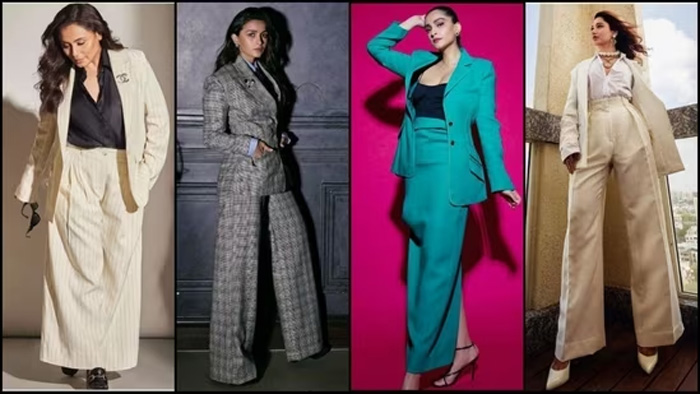Quick guide to office fashion: 5 trendy tips to style your workwear for a polished and professional look
Incorporating your unique style into professional workwear can be a challenge, whether you work in a formal corporate environment or a more relaxed coworking space.
Workwear ideas have to meet a number of demanding practical requirements: they have to be comfortable for all your commuting needs, comply with company dress codes (including the unpredictable air conditioning) and cover whatever the weather app predicts when you wake up. Some days you have meetings or presentations that require you to look professional, while other days you have a dinner or performance scheduled after your to-do list is over. Most importantly, you want to look like yourself and be ready for a promotion.
What is acceptable in one workplace may raise eyebrows in another, depending on the job, office environment and even personal preference. We turned to the experts to help you navigate the varied and sometimes confusing world of office fashion. Get ready to give your work wardrobe a stylish makeover!
Why your work clothes matter?
“Dress for the job you want, because how you look matters for success. First impressions happen super-fast, so dressing right is more than just looking good – it is about making a positive first impression. Your work clothes show you are committed to your job and care about how you represent yourself and your company. This affects how clients, customers, and colleagues see the organization. Wearing professional clothes not only makes you look the part but also boosts your confidence to face challenges and move ahead in your career, ” says Roshan S Bisht, fashion expert, co-founder and CEO of Asort.com and promoter- Cape and Cloth.
He added, “Your clothes influence how people trust and engage with you at work. Job interviews are critical, so dressing professionally shows you are serious and can make a big difference in getting your dream job. Your work clothes also let you be yourself within professional limits. Studies say the workplace vibe changes with dress codes – a more relaxed one can boost productivity. In a nutshell, your clothes speak volumes about your dedication, confidence, and personality, impacting your success in the professional world.”
Tips to style your workwear
Roshan further shared with HT Lifestyle a quick guide on office fashion for a polished and stylish professional look.
1. Business Professional: This is the most conservative office dress code, commonly found in industries like finance, banking, government, and law. A tailored suit or pantsuit with a button-down shirt or a knee-length pencil skirt and blazer is the standard. Footwear should be closed-toe and three inches or shorter, with flats, loafers, or oxfords also being appropriate.
2. Business Formal: Reserved for special events, business formal requires a dark-coloured suit or skirt suit, a dress shirt, and silk ties or pocket squares. Minimalist accessories and dress shoes complete the look.
3. Business Casual: A step down from business professional, business casual allows for more flexibility. It typically involves a collared shirt or sweater paired with slacks, khakis, chinos, or a pencil skirt. Closed-toe professional shoes, such as boots, heels, flats, loafers, mules, or oxfords, are recommended.
4. Casual Work Environment: Common in creative industries and casual on Fridays, a casual office dress code is less restrictive. While it allows for more casual clothing, professionalism should still be maintained. Solid-coloured button-downs, blouses, T-shirts, and dark-wash or black denim are appropriate, with closed-toe shoes and no flip-flops.
5. Smart-Casual: A step up from casual, smart-casual attire is suitable for job interviews, client meetings, and events in casual workplaces. Trendier pieces, such as work-appropriate jumpsuits, blazers, and higher-end footwear, are encouraged.
In the words of Edith Head, “You can have anything you want in life if you dress for it.” So, as you navigate the professional world, remember that your work clothes are not just about fashion; they are a powerful tool in shaping perceptions, building confidence, and ultimately achieving success.

